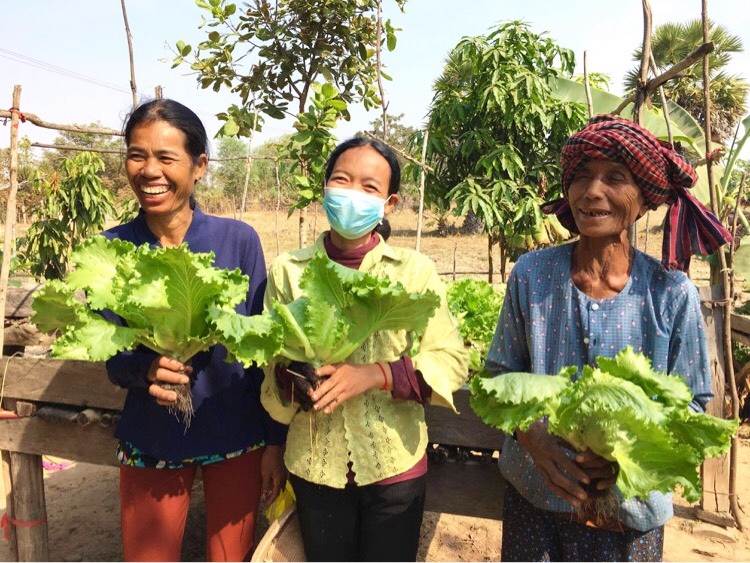
We will continue to grow vegetables by ourselves!
Program Background
With continuous economic growth, Cambodia sees a widening economic gap between urban and rural areas. In the farming villages in Siem Reap Province, where we conduct our activities, many people go to big cities or neighboring countries to find jobs. On the other hand, those who have no wage earner in the family and must stay in the village live economically severe lives. In the fiscal year of 2020, Siem Reap, a sightseeing city and one of the migrating workers’ major destinations, was also affected greatly by the new coronavirus. We have worked in the current activity areas since 2007, providing support for villagers so that they could create a stable life by themselves based on subsistence agriculture.
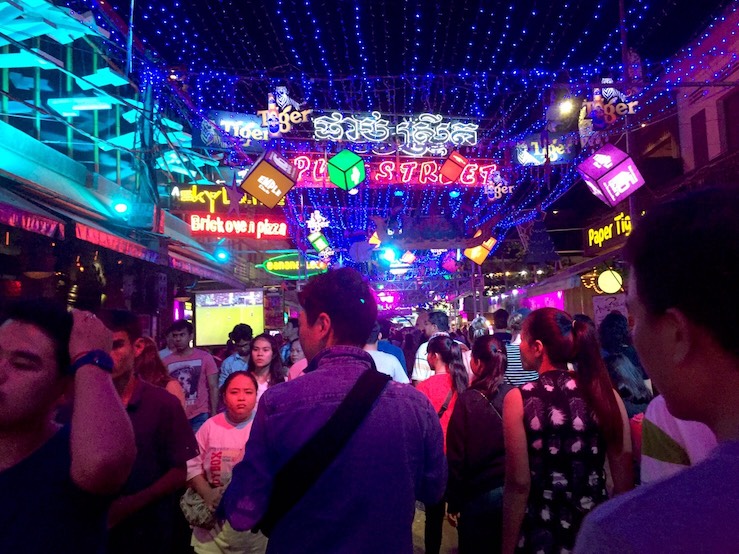
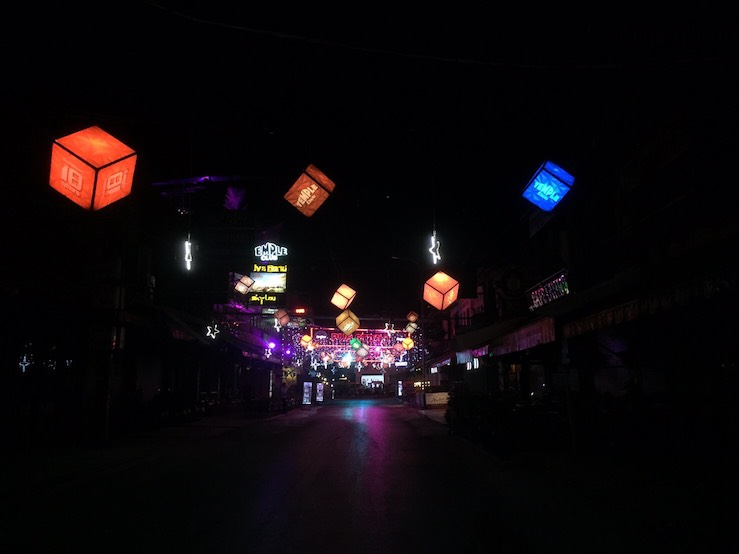
The town of Siem Reap had always attracted many sightseers before the pandemic (top), but the same place looks quiet in January 2021 (bottom).
A Story in Our Activity Area
“The pond has changed my life. With such great support, working hard every day is not a burden for me. I used to spend a day just going to bed, waking up and eating. Now I enjoy a wonderful life working in my vegetable garden, having something to eat and earning money. On top of that, some people come to buy my vegetables and ask me about my farming techniques. It’s a pleasurable experience. Although the activities of JVC came to an end, I will continue what I have learned from them. That is of course for my family, but I also like to continue the activities that JVC did here. More people have started vegetable gardens around me. Witnessing this, I can visualize the future of our village where people can be well-off on food. At that time, I would like people to remember the fact that JVC helped us get to where we are now.”
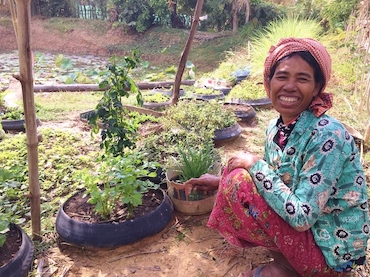
Ms. Nem Sornn (51), one of the villagers living near the dug pond.
Livelihood improvement support
Outline of the Activities
Covering six villages in Chi Kraeng District, we engaged in improving food stability and security by ameliorating local villagers’ livelihood. With no water sources in the area, it was difficult to practice vegetable gardening. To resolve this, we dug eight reservoirs (“ponds”) and three wells and followed them up. In addition, we conducted various training such as using organic agrichemicals utilizing available resources and agricultural technology training to respond to water scarcity. To the villagers who have succeeded in self-support, we provided opportunities for them to be able to sell their products. We conducted training on how to process 15 kinds of herbs that are harvested in their vegetable gardens. Then, we sold the processed herbs to an organic herb tea company. We organized the sales process so that the villagers can manage the whole process up to the shipment by themselves. In August, we closed the agricultural resource center that we had operated and transferred its functions to five places in our activity villages. We also made a model vegetable garden with volunteer villagers, where any villager could come and exchange information with each other. In February, we provided our first online study tour. The Japanese participants and the villagers of our activity sites enjoyed a special time. We could not give any training during the new coronavirus pandemic, but we cooperated with the Cambodian government in providing emergency assistance such as delivering hygiene items and food to the quarantine isolation facility in the activity sites.
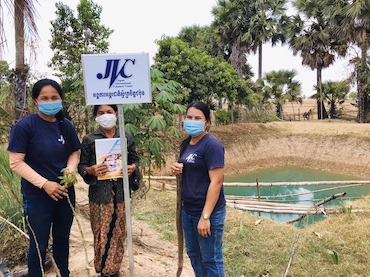
The water stored during the rainy season can be used as agricultural water during the dry season.
Observed Changes
According to the activity assessment implemented in February, more than 90% of the participants of the training felt that the productivity levels increased. In addition, we confirmed that the variety of products increased up to thirteen kinds on average, compared to two kinds before the training. The ways of getting cash income while staying in the village have increased: villagers who sell vegetables and dry herbs get steady sales every month, and some of them even earn more than US$100/month when there are good crops. Moreover, villagers started to respond to the changes in society on their initiative. For example, when they had to stop selling their products in the urban areas due to the new coronavirus, they began to think how to be able to sell their products in their community and started production planning by themselves.
Many villagers now look more confident. The experience that they could do something by themselves gave them confidence and pride. Here are the voices of the villagers.
“My life has changed. Thanks to the water from the pond, I can harvest vegetables from the land that used to be deserted.”
“We have reduced our spending because we eat vegetables from our own garden every day.”
“I could buy my children their school uniforms and let them attend a remedial class on my own. I can’t read and write myself, but it’s me who can give them an educational opportunity.”
“I saved the money on a sale and bought a bicycle for the first time in 20 years. Now, every morning, I use this bicycle to sell vegetables.”
“Before, I couldn’t pay wedding gift money and when I found someone coming to pass me an invitation to a wedding, I hid myself in the rice field. But now, I am proud to be able to receive an invitation and participate in the wedding ceremony using my own money.”
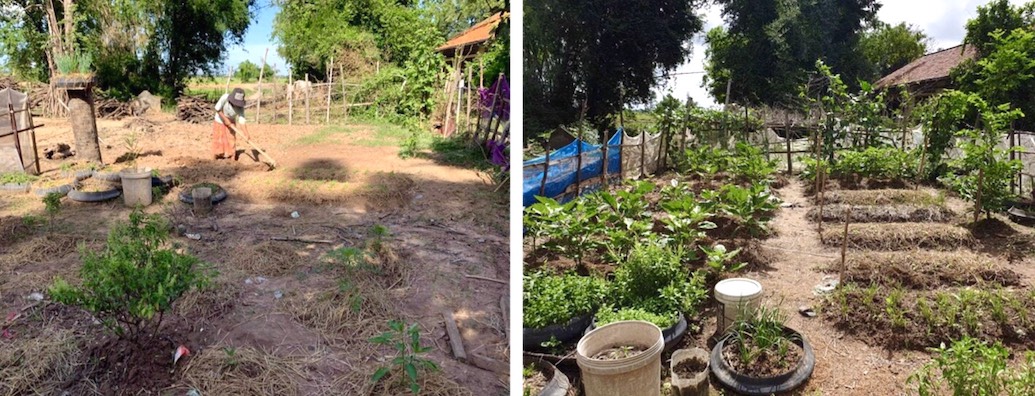
Ms. Seum Thorng started her vegetable garden after JVC dug the pond. She enlarged it by using the new knowledge she got from the training (left: July 2020, right: September 2020).
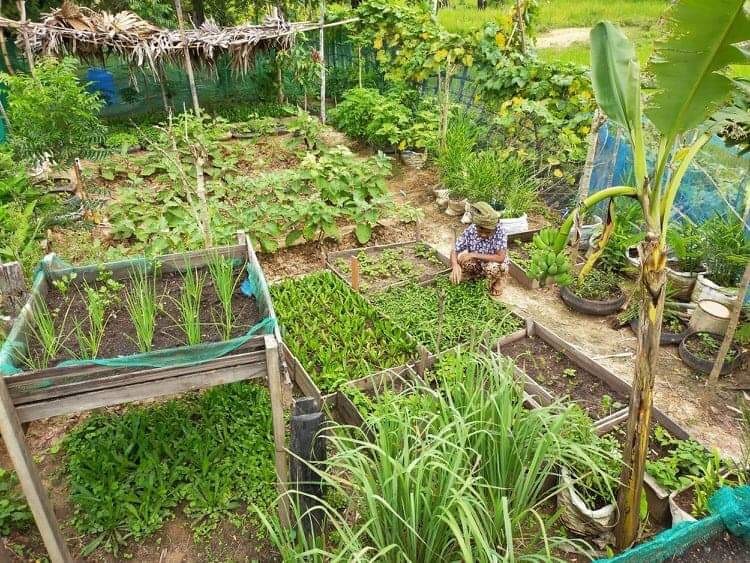
Ms. Sam Khorn’s vegetable garden can now yield various kinds of crops even during the dry season. She welcomes many visitors to her vegetable garden to share information.
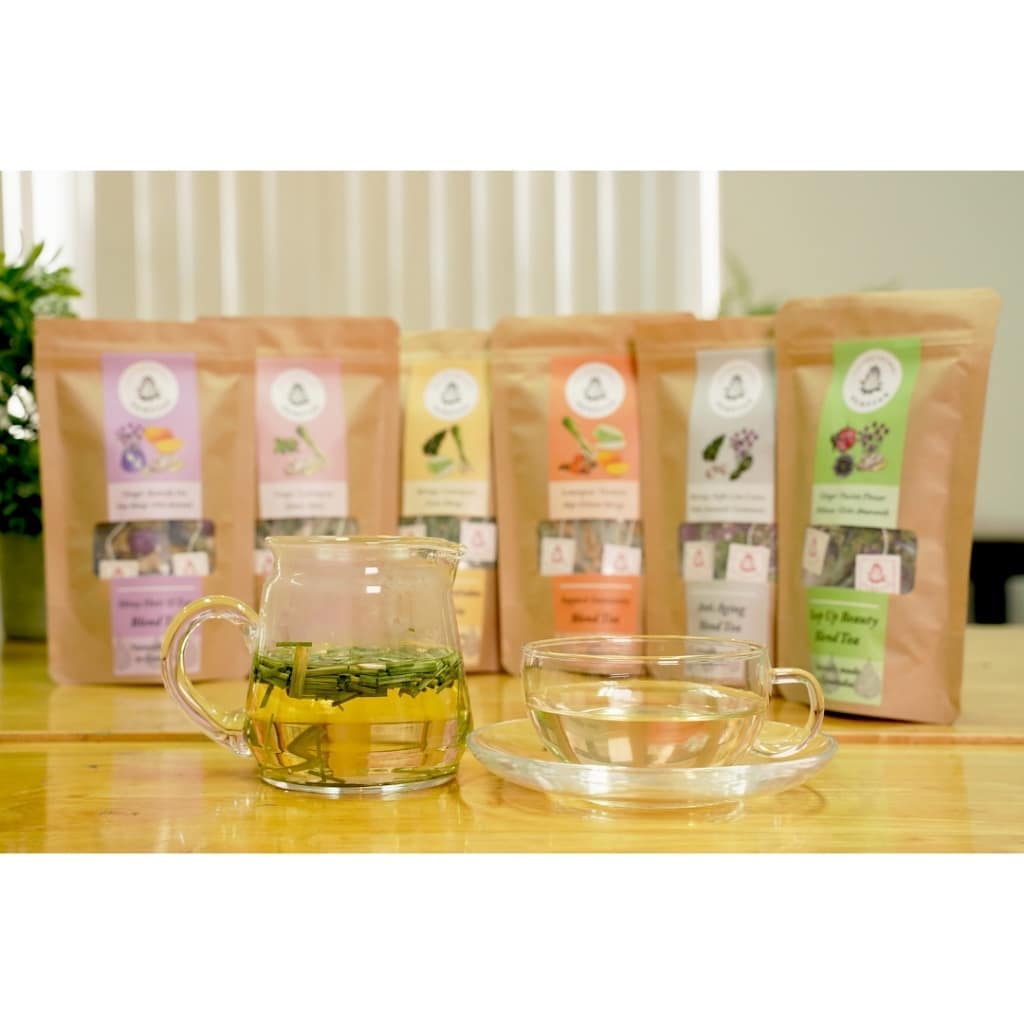
You can purchase herb teas made from materials that are produced in our activity areas. Please search the Internet for Demeter Cambodia Herb Store! ©Demeter
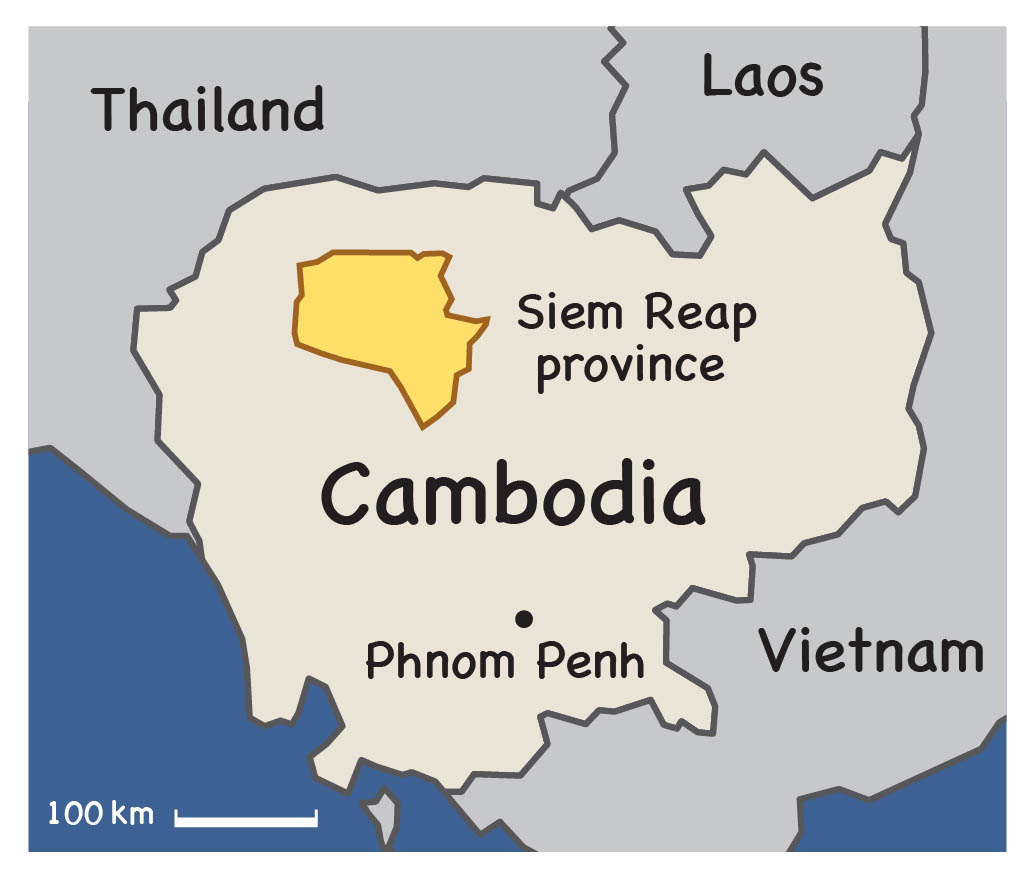
* The activities in Cambodia finished at the end of March 2021. We truly appreciate those who have supported the projects for many years.
[Source: JVC Annual Report 2020]
Share This: